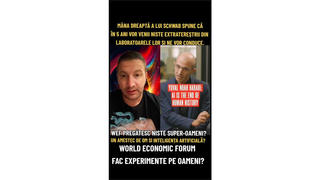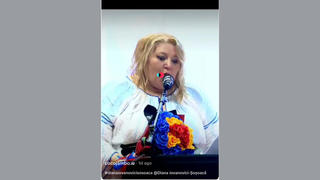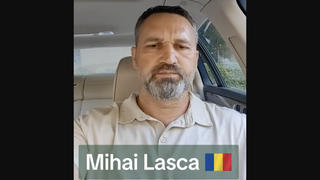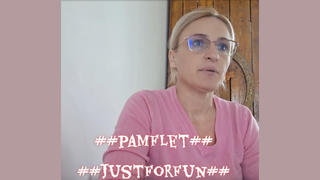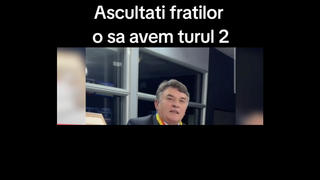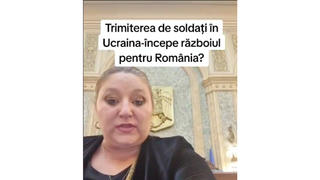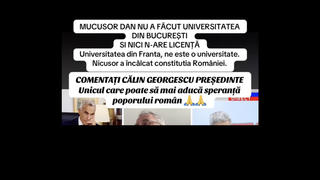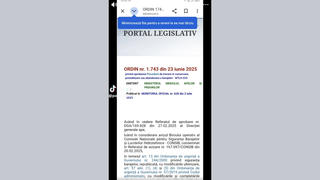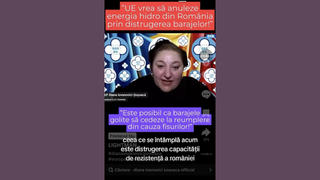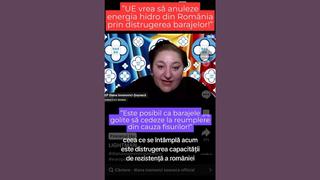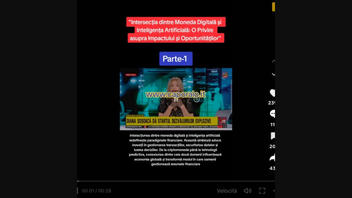
Is the EU going to block bank accounts in Europe if people don't spend at least a certain amount of money, set by Brussels? No, that's not true: The EU does not have the authority to block bank accounts. There are various projects and initiatives in the works, such as the digital Europe programme and the digital identity, aimed at making public services more accessible and easy to use, as well as at increasing safety and transparency. There is no mention, though, of a minimum spending requirement for EU citizens in order to keep their bank accounts functioning.
The claim originated from a video published by TikTok user @www.caporalo.it (archived here), on August 10, 2023. The text overlay, translated from Romanian to English by Lead Stories staff, reads:
'The Intersection of Digital Currency and Artificial Intelligence: A Look at Impact and Opportunities.' The interaction between digital currency and artificial intelligence is redefining financial paradigms. This symbiosis brings innovations in transaction management, data security and decision making. From cryptocurrencies to predictive technologies, the connection between the two fields is influencing the global economy and transforming the way people manage financial resources.
This is what the post looked like on TikTok at the time of writing:

(Source: TikTok screenshot taken on Mon Aug 21 08:12:36 2023 UTC)
The woman in the video is Anca Alexandrescu, host of the TV show "Culisele Statului Paralel" ("The Backstage of the Parallel State," as translated by Lead Stories staff) on Realitatea TV, talking during her nightly show on August 6, 2023. Here, Alexandrescu talks at length about society's decline and the pressure placed on young generations. She then claims that Romanians in Vienna can no longer pay with credit cards but only with cash, and adds that she does not want Brussels to force her to have a minimum spending requirement per month in order not to have her bank account blocked. The block, she claims, would be enforced through tools such as the "digital wallet" and the "digital identity."
While many initiatives are rolling out across the world to introduce card-only payments in certain businesses and stores, Austria is particularly fond of cash, according to a Klarna study, and there is no credible basis to the claim that cash has been banned in Vienna, and that this affects only Romanians, as Alexandrescu says.
The EU is not trying to impose a minimum quantity of money that needs to be spent by EU citizens in order for them to keep their bank accounts active. Banks, not the EU, have the authority and the discretion to freeze accounts, only if they suspect account holders are conducting illegal activities, according to Investopedia.
According to regulations on a European account preservation order procedure (EAPO), a creditor trying to get their money back from a debtor in another EU country can have the debtor's bank account blocked if a civil court order is enforced in that country. However, this cannot happen without substantial, credible evidence, and there are practical obstacles that make the procedure complicated and costly.
The EU digital wallet and digital identity have nothing to do with blocking bank accounts. According to the European Commission's European Digital Identity website, the EU Digital Identity Wallet is meant to create a practical toolkit for EU citizens to use across EU member states, by way of accessing documents and public services, such as opening a bank account, renting a car, or applying to university. The term "wallet" refers to all these different tools, and its end goal is to make things easier and smoother for EU citizens.
This program has not been implemented yet. The European Commission is currently running an online consultation platform on this issue, where EU citizens can give their feedback on.


